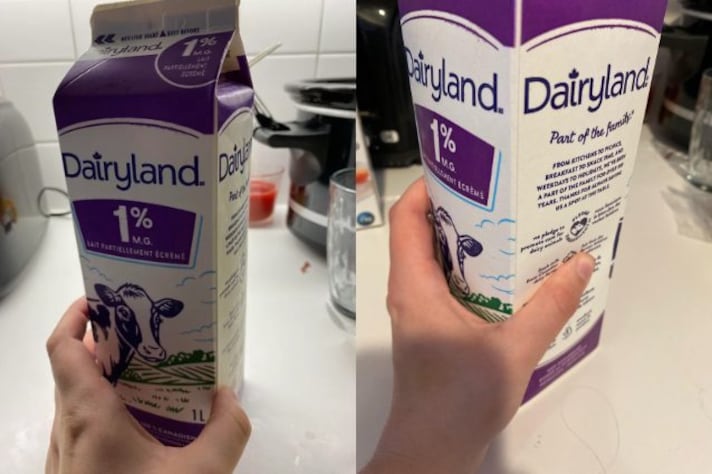
Milk cartons bloat when gas builds up inside the packaging. This can happen for a few reasons:
- Bacterial growth: The most common cause. If bacteria multiply inside the carton, they release gases that inflate the packaging. This usually means the milk is spoiled.
- Compromised seal: If air sneaks in due to a damaged or faulty seal, bacteria can enter and grow. Even if the milk was fresh when packaged, exposure to air speeds up spoilage.
- Temperature changes: Fluctuating temperatures can cause expansion inside the carton, though this is less common.
If your milk smells sour, tastes off, or has curdled, it’s no longer safe to drink.

Does a Bloated Carton Always Mean Spoiled Milk?
Not always. Some pasteurized or UHT (ultra-high temperature) milk cartons may expand slightly due to air trapped during packaging. If the carton is bloated but the milk smells and tastes normal, it might still be safe. However, if it’s bulging excessively, it’s best to throw it away.
For plant-based milk, bloating can occur if preservatives aren’t used or if fermentation starts due to bacterial contamination.
How to Prevent Milk from Spoiling
To keep milk fresh and avoid bloating:
- Store it at the right temperature: Keep milk at 5°C or below to slow bacterial growth.
- Close the carton properly: Ensure it’s sealed tightly after each use.
- Avoid leaving milk out: Warm temperatures speed up spoilage. Always return milk to the fridge quickly.
- Check expiry dates: Even if unopened, milk can spoil if stored too long.
If a milk carton is bloated before you open it, it’s safest to throw it away. Spoiled milk can cause food poisoning, so when in doubt, don’t drink it.
;Resize,width=767;)
